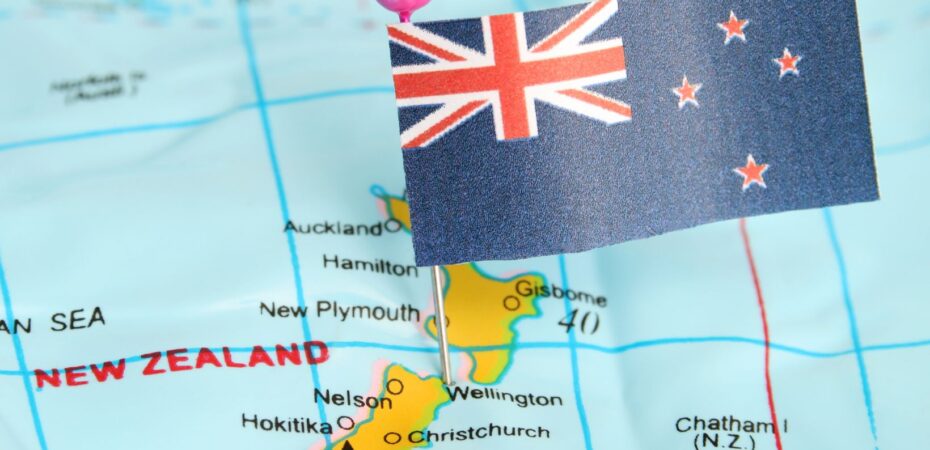New Zealand fared remarkably well at the 2024 Summer Olympic Games in Paris.
It was the most successful Olympic campaign ever for the country, matching their previously highest medal total of 20 from the 2020 Games in Tokyo.
New Zealand also went one better this summer, amassing ten gold medals to break their previous record of eight from Los Angeles in 1984.
In addition to the women’s team’s success at the rugby sevens tournament, New Zealand excelled in canoeing, cycling, and rowing, mustering seven golds, four silvers, and two bronzes in these sports.
These outstanding successes will guarantee canoeing and cycling receive substantial financial support. The same goes for rugby.
High Performance Sports New Zealand (HPSNZ) announced $131 million in funding to athletes for the 2021-24 cycle.
With the 2025-28 cycle on the horizon, Elite Training Grants will go up to $50,000 per year to aid athletes eligible to compete in sports for the upcoming Summer and Winter Olympic Games.
Bishop Eager to Diversify
While paying close attention to the country’s results at major sports events, minister for sport Chris Bishop has a genuine ambition to attract more international events to New Zealand.
During his visit to Paris to support New Zealand’s athletes, Bishop held a face-to-face meeting with World Athletics president Sebastian Coe to discuss this proposition.
Lord Coe led the staging of the London 2012 Olympics and is currently serving his third and final term as the head of the organization.

“What we’re hoping is that New Zealand could attract more sporting events, particularly in the athletics realm, so we are starting some conversations around that,” Coe told First Up.
Meanwhile, Bishop hailed athletes’ extraordinary results in Paris, highlighting the government’s role in funding sports ventures over the years.
“It comes after many years of investment by the government and sports over the years. But most fundamental, of course, is the effort of the athletes themselves, who do extraordinary things on the world stage and make New Zealand proud of them.
“It’s about national pride. The Olympics is the pinnacle of sporting achievement. And for New Zealanders, seeing talented young New Zealanders competing on the world stage.”
Rugby Issues Highlight a Shifting Landscape in New Zealand
Much like neighboring Australia’s affinity with horse racing, New Zealand has long been associated with rugby union. However, there appears to be a shifting paradigm.
While rugby remains the most dominant sport in New Zealand, as evidenced by the plethora of sites on Bettingtop10.co.nz offering odds on the sport, the situation is far from rosy.
Less than 30,000 spectators attended New Zealand’s first-round Rugby Championship match against Argentina at Wellington’s Sky Stadium last Saturday.
Los Pumas ran out 38-30 victors as the All Blacks did not turn up on the pitch. A lack of activity on betting sites suggests fans are less than enamored with the team.
Argentina’s victory added insult to injury, marking the South American side’s only second win on NZ soil at the venue where the hosts picked up just one triumph across their last seven matches.
Ominously for New Zealand’s bid to uphold its status as a rugby nation, a poor turnout in the capital sent a concerning message after the team’s first game of the Rugby Championship. The reason for such a disappointing outcome could be ticket pricing.

The cheapest tickets were $53, excluding additional fees such as a one-off servicing fee of $6.95 and a payment processing fee of 2.20 percent.
RLWC 2030 Could be a Game-Changer for New Zealand
Rugby league has traditionally struggled to match its rugby union counterpart in New Zealand, but things could be about to change.
The Kiwi nation has advanced to the next stage of bidding for the 2030 Men’s Rugby League World Cup. Hosting the tournament could be a game-changer.
With the Kiwis clinching the 2023 Pacific Cup title and the New Zealand Warriors becoming the first elite club to sell out every home game in a season, the sport is at an all-time high.
New Zealand boasts the infrastructure, expertise, and passion required to host a successful 2030 World Cup, ensuring a lasting legacy for the sport.
With the struggling rugby union, the rugby league has a golden opportunity to win the hearts and minds of sports fans in New Zealand.
“Rugby league is experiencing significant growth in New Zealand, with passionate fans and increasing participation levels across the country testament to that,” New Zealand Rugby League Chief Executive Officer Greg Peters said.
“Bringing a major rugby league event in the 2030 Men’s Rugby League World Cup, the pinnacle of our sport, to New Zealand presents us with an opportunity to not only capitalize on that growth but help to further embed rugby league into the fabric of our communities, inspiring those to come.”


 By
By 










